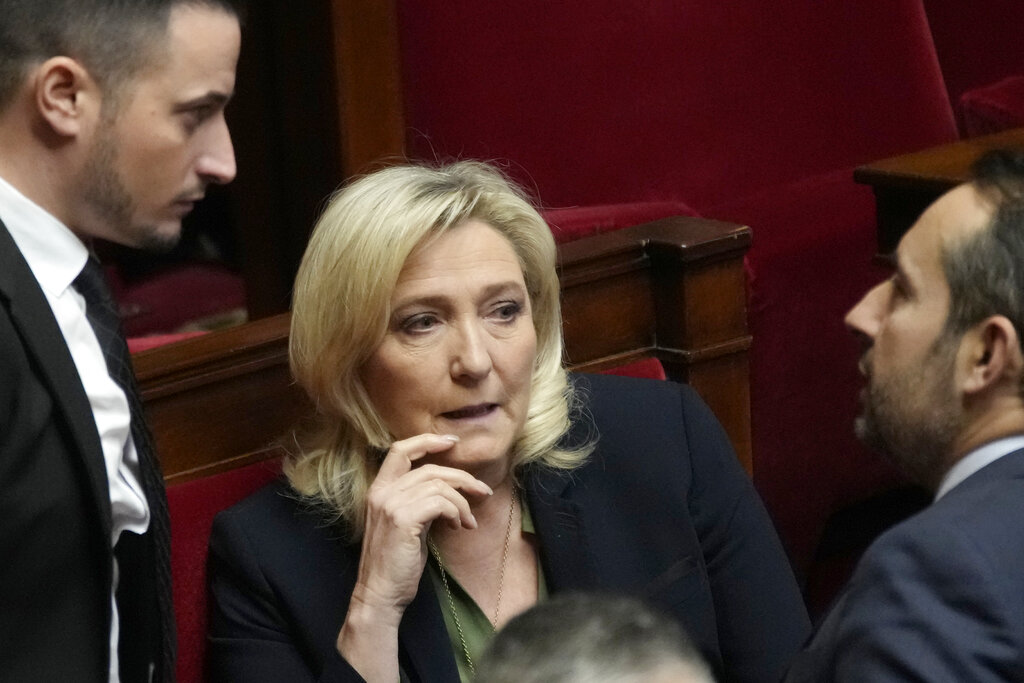One of the most popular French opposition politicians, Marine Le Pen, is the most likely to win the next elections in 2027, writes British newspaper The Times.
The right-leaning politician’s position has been strengthened by her strong stance over the last two weeks against the government’s proposed pension reform. She has been sharply critical of President Emmanuel Macron, who wants to keep French people working longer by extending the retirement age by two years from 62 to 64.
While addressing to French Prime Minister Élisabeth Borne, Le Pen said during a speech in parliament last month: “Is it good for the country to start this year by proposing a retirement reform that seeks to raise the age of retirement, something that 70% of French are opposed to? The government speaks of courage, but it is not courage to make French people, especially those who started working at an early age, pay for the failures of the policies of these last years.”
Le Pen was referring to polling which has consistently shown that the French public is overwhelmingly opposed to Macron’s pension reform. Her stance is winning over many French, and the British newspaper points out that her popularity has been on the rise recently, in fact it has been rising steadily since the elections last April thanks to Le Pen’s growing approval among the working- and lower-middle classes. The Times also highlights the current European context showing a move towards conservative and right-leaning parties, which is favorable for Le Pen, particularly with regard to the election of Italian Prime Minister Giorgia Meloni.
They point to a poll by Harris Interactive published at the end of January, which showed that 35 percent of respondents trust Le Pen, up from 29 percent in January 2022.
By contrast, Emmanuel Macron’s popularity is in decline, with the French president’s approval the lowest in three years, according to a survey conducted by Ifop for Le Journal du Dimanche. That poll shows that French people are less and less happy with the French head of state, with now only 32 percent saying yes to the question of whether they are satisfied with the leadership. The French president’s popularity has fallen by 2 percent in a month, to the lowest level since the outbreak of the coronavirus three years ago.
Compared with the results of a month ago, Macron’s popularity has fallen, especially among Republican Party supporters, who are 12 percent less likely to vote for him than before. However, even among supporters of the governing party, Macron’s popularity has fallen by 4 percent.
The poll also shows that Prime Minister Élisabeth Borne is not faring any better, with her popularity down by 3 percent to 29 percent, the lowest level since she took office. The dramatic drop in the popularity of the French head of state and prime minister is largely due to the pension reform, which has provoked strong opposition.






